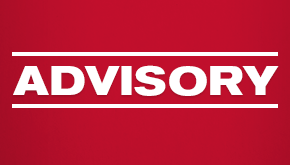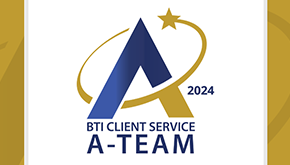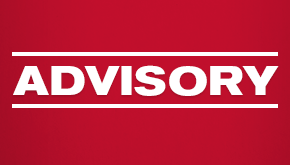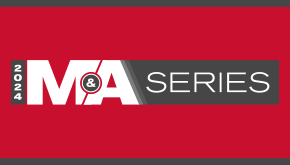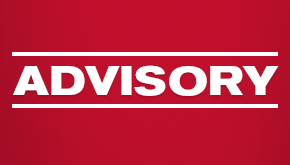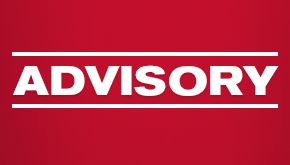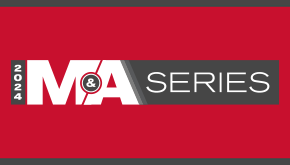COVID-19: Recent Developments
As the situation surrounding the COVID-19 pandemic continues to evolve, we recognize that updates are coming in quickly, and changing just as fast. This repository will include a variety of legal-related updates and guidance for businesses to consider as they navigate this very dynamic situation.
EEOC: ADA Prohibits Requiring COVID-19 Antibody Tests
June 17, 2020
By Travis Kearbey
The EEOC announced today that the ADA prohibits employers from requiring employees to take a COVID-19 antibody test before returning to work. In doing so, the EEOC distinguished antibody tests from “viral testing” for COVID-19, the latter of which may be required as a condition of returning to work.
Retailers Face Unprecedented Challenges in Light of COVID-19
April 2, 2020
By Erin Edelman
COVID-19 is sweeping the globe, and retail operations are bracing for impact. Strict social distancing guidelines and many states’ “stay-at-home” orders are forcing nonessential retailers to temporarily close their doors, further devastating already-struggling retailers and potentially leading to an uptick in bankruptcy filings.
COVID-19 is also thwarting current debtor-retailers’ reorganization or liquidation efforts. For example, citing COVID-19, Modell’s Sporting Goods, Inc. and affiliated debtors have requested that the New Jersey Bankruptcy Court temporarily suspend all deadlines and activities in their Chapter 11 bankruptcy case, including their going-out-of-business sales at 134 store locations (In re Modell’s Sporting Goods, Inc., et al., Case No. 20-14179-VFP (Bankr. D. N.J. March 23, 2020)(Docket No. 115)). The Bankruptcy Court, acknowledging the exigent circumstances caused by COVID-19, granted the debtors’ request (In re Modell’s Sporting Goods, Inc., et al., Case No. 20-14179-VFP, (Bankr. D. N.J. March 27, 2020)(Docket No. 166)).
The question remains whether the recently passed U.S. government stimulus package, as well as those being considered in other countries, will be enough to save retail and other companies from bankruptcy or other liquidation measures. However, even if a retailer required bankruptcy protection, the question then becomes which chapter of bankruptcy relief is appropriate under these circumstances. A Chapter 11 reorganization could be complicated because of the lack of a clear path forward with COVID-19 and, thus, lack of enough certainty to entice lenders to participate in a restructuring. A Chapter 7 liquidation would also prove impractical if a debtor cannot effectively liquidate its inventory because of social distancing and stay-at-home orders. The overall devastation of COVID-19 remains to be seen. However, one thing is for sure: retail cannot catch a break.
OSHA Recordkeeping and COVID-19
March 27, 2020
The Occupational Safety and Health Administration’s (OSHA) published guidance states that COVID-19 “can be a recordable illness if a worker is infected as a result of performing their work-related duties,” assuming the case meets the other recording criteria. The recordkeeping regulation exempts certain acts from the recording requirement, even if the event occurred in the workplace. The standard exempts illnesses that are “solely the result of an employee eating, drinking, or preparing food or drink for personal consumption (whether bought on the employer’s premises or brought in).” 29 CFR § 1904.5(b). Thus, if an employee contracts the virus at work as a result of consuming food or drink that is contaminated with the virus, it should not be considered recordable under 29 CFR § 1904.5(b). The question is, how does anyone really know how a virus, which can’t be seen without a microscope, enters a person’s body?
Any employer of an employee who contracts the virus should carefully analyze the case and should not assume that it was contracted in the workplace. Reflexive recording of these cases on an employer’s log could have a significant impact on the employer’s recordable case rate and “days away” rate, since any case will likely include several days away from work. Any employer who has one or two infected employees would be very hard-pressed to know how or where the employee(s) contracted the virus, and whether it was contracted as a result of eating or drinking in the workplace. The first employee to exhibit symptoms, especially if it is many days before any other employee exhibits symptoms, likely did not contract it in the workplace. If several employees who work in the same work area contract the illness, and the geographic area does not have an outbreak, the facts may weigh in favor of a determination that the virus was contracted in the workplace. That still would not answer the question of whether it was the result of eating or drinking in the workplace. Under OSHA recordkeeping requirements, covered injuries and illnesses must be recorded on the log within seven calendar days after the employer receives information that the illness occurred. In order to determine whether a case is recordable, the employer may need to wait and see whether just one or two employees get the virus, or whether a larger group of employees from the same work area contract the virus. The burden would be upon OSHA to prove, through an enforcement action, that it was likely that the case was recordable.
Many workers’ compensation carriers are denying coverage for COVID-19 cases on the basis that communicable diseases are contracted in many ways, and the work environment, other than a health care setting, does not pose greater risk for contracting the virus than the general environment. These determinations are guided by state workers’ compensation laws, not OSHA. Additionally, the OSHA recordkeeping regulation specifically exempts the common cold and flu from recordkeeping requirements, although it states that “diseases like tuberculosis, brucellosis, hepatitis A or plague are considered work-related if the employee is infected at work.” 29 CFR § 1904.5(b)(2). These guidelines are causing employers to question why OSHA would want employers to record COVID-19 cases.
Small and Midsize Employers: IRS to Issue Guidance on Payroll Tax Credits for Coronavirus-Related Leave
March 21, 2020
By Lauren Schuster, Sarah Sise and Travis Kearbey
As described in our alert issued earlier this week, the Families First Coronavirus Response Act (FFCRA) includes two new payroll tax credits that small and midsize employers can use to cover the cost of providing mandated COVID-19-related leave to their employees. The payroll tax credits provide relief to employers that provide emergency paid sick leave and paid leave benefits under the expanded Family and Medical Leave Act to employees who take leave to care for children who are out of school or daycare due to the COVID-19 pandemic. Those employers can retain an equivalent portion of the payroll taxes they otherwise would have remitted to the IRS for wages paid to all of their employees.
The IRS announced on Friday that it intends to issue guidance next week to address the mechanics of how employers can claim the credits. Essentially, an eligible employer will be able to immediately “collect,” on a dollar-for-dollar basis, the tax credit by offsetting federal paid leave benefits with payroll tax funds that would have otherwise been sent to the IRS. The following examples, from the IRS announcement, illustrate how this will work:
- If an eligible employer paid $5,000 in sick leave and is otherwise required to deposit $8,000 in payroll taxes, including taxes withheld from all its employees, the employer could use up to $5,000 of those taxes to make qualified leave payments. Under the law, the employer would only be required to deposit the remaining $3,000 on its next regular deposit date.
- If an eligible employer paid $10,000 in sick leave and was required to deposit $8,000 in taxes, the employer could use the entire $8,000 in taxes to make qualified leave payments and file a request for an accelerated credit for the remaining $2,000.
This announcement, and the accompanying guidance that the IRS has indicated will follow next week, come as welcome guidance to employers with fewer than 500 employees that are covered by the new federal paid leave laws and are scrambling to determine how to pay for those new benefits.
Jackson County Circuit Court Issues Order Delaying Issuance and Execution of Writs
March 23, 2020
On March 19, 2020, in an effort to reduce the possibility of exposure to COVID-19 and promote the health and safety of Kansas City, Missouri, residents, the Circuit Court of Jackson County issued Administrative Order 2020-062, which delays all issuance and execution of writs of restitution, writs of replevin, writs of attachment and any other writs of execution. It is now known that COVID-19 spreads through close contact with infected persons and executing writs would necessarily require employees of the Court’s Civil Process Department to come in close contact with members of the public, which puts residents and employees at risk. Consequently, until April 19, 2020, the Court Clerk must delay issuing any of the aforementioned writs, and the Director of Civil Process is prohibited from executing any of the same. This order comes after the federal government’s guidance that it was not in the interest of public health to displace residents and issued a moratorium on foreclosure and eviction actions for homeowners with mortgages backed by FHA, Fannie Mae and Freddie Mac.
Foreclosure, Eviction Proceedings Suspended in State, Local Jurisdictions
March 19, 2020
Earlier this week, Kansas Gov. Laura Kelly issued an executive order in an effort to mitigate some of the negative economic effects of the spread of COVID-19. The order directs and orders all financial institutions to “temporarily suspend the initiation of any mortgage foreclosure efforts or judicial proceedings and any commercial or residential eviction efforts or judicial proceedings until May 1, 2020.”
The order does not apply to lenders that are not financial institutions and does not address completion or continuation of proceedings that were initiated prior to its effective date. Other state and local officials are taking similar steps in light of the pandemic. The National Low Income Housing Coalition has compiled a running list. Our attorneys continue to monitor for developments in this area. Please contact us to discuss whether any pending sale or judicial proceedings in the State of Kansas, or elsewhere, related to foreclosure and eviction should be canceled or suspended.
Iowa Suspends WARN Act for Temporary Layoffs
March 19, 2020
By Ida Shafaie
As employers consider potential layoffs, be sure to check the notice obligations under WARN and state mini-WARN laws. The Iowa Workforce Development Office recently issued a Q&A for employers addressing concerns regarding plant shutdowns and layoffs. The guidance expressly states that employers instituting a temporary shutdown do not need to issue a WARN notice.
More information regarding Iowa’s Workforce Development Office and its response to COVID-19 can be found here.
EEOC Issues COVID-19 Related Hiring Guidance
March 18, 2020
By Travis Kearbey
The Equal Employment Opportunity Commission (EEOC) has provided the following additional Q&A guidance:
- If an employer is hiring, may it screen applicants for symptoms of COVID-19?
- Yes. An employer may screen job applicants for symptoms of COVID-19 after making a conditional job offer, as long as it does so for all entering employees in the same type of job. This ADA rule applies whether or not the applicant has a disability.
- May an employer take an applicant's temperature as part of a post-offer, pre-employment medical exam?
- Yes. Any medical exams are permitted after an employer has made a conditional offer of employment. However, employers should be aware that some people with COVID-19 do not have a fever.
- May an employer delay the start date of an applicantwho has COVID-19 or symptoms associated with it?
- Yes. According to current CDC guidance, an individual who has COVID-19 or symptoms associated with it should not be in the workplace.
- May an employer withdraw a job offer when it needs the applicant to start immediately but the individual has COVID-19 or symptoms of it?
- Based on current CDC guidance, this individual cannot safely enter the workplace, and therefore the employer may withdraw the job offer.
IRS Response to COVID-19: Reimbursement of Testing and Treatment Expenses
March 18, 2020
By Sarah Sise, Scott Hunt and Lauren Schuster
The Internal Revenue Service (IRS) announced in Notice 2020-15 that testing and treatment for COVID-19 that is covered by insurance or through an employer’s self-funded health plan prior to satisfaction of the applicable deductible will not affect an otherwise-compliant plan’s status as a high-deductible health plan (HDHP) under Section 223 of the Internal Revenue Code. Some taxpayers receive tax advantages by contributing to, or receiving employer contributions to, a health savings account (HSA) if they are covered by an HDHP. However, they would have previously lost those advantages if their insurance or group health plan pays for their COVID-19 testing or treatment expenses before they reach their HDHP deductible. Under this new IRS guidance, covering medical care expenses for COVID-19 testing and treatment prior to the satisfaction of the applicable minimum deductible will not cause a plan to lose its status as an HDHP.
If you sponsor an employer plan and would like to permit coverage of COVID-19 related expenses prior to a participant’s satisfaction of the applicable deductible, it is recommended that you work with legal counsel to make an amendment to the plan and communicate the change to participants as soon as possible.
This notice comes as the IRS and government at large are making an effort to reduce the spread and negative effects of COVID-19, in the hope that fewer individuals will be discouraged from receiving testing and treatment by prohibitively high costs. We expect additional guidance and legislation over the coming days and weeks, and our Employee Benefits attorneys will continue to monitor and provide updates regarding these developments. Additional information for sponsors of group health plans will be provided as these developments occur.


